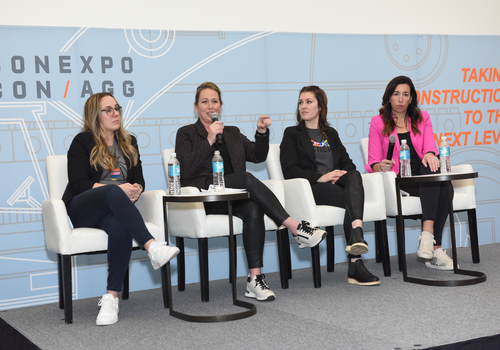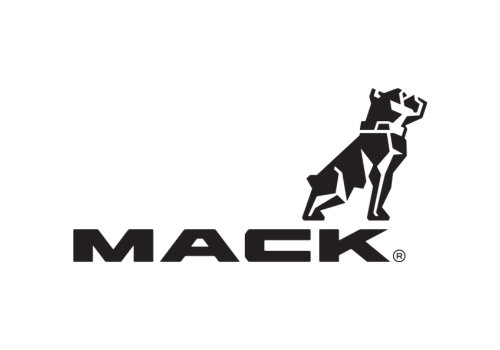Starting a business is always challenging and stressful. There are numerous obstacles to overcome. However, it is not that hard to start a business. The real problem is that it is extremely difficult to make a business work.
With a lengthy history in excavation and seeing a need for quality site development contractors in his area, Dane Cotten decided to start DC Excavation in early 2016. Based in Bozeman, MT, the company is a demolition and excavation company primarily focused on commercial site development, large residential development – 10,000 square feet or more, and mass grading.
Surprisingly, Bozeman is the number one area in the country for full site development, notes Cotten. “We have crazy amounts of work and there is a huge lack of good companies doing this kind of work correctly. Montana is in a transition period where it is switching from old ranch farming to new age type construction.”
Prior to founding his company, Cotten was working for a developer and finding qualified people to come to work “was impossible.” That is when he began thinking about starting his own company.
“Since starting my company in 2016, in a few short years, we’ve grown the business a lot further than I ever imagined was going to be possible.”
DC Excavation has a workforce of 15 and a fleet of 15 pieces of equipment, including, excavators, loaders, skip and skid steers, and rollers.
Getting started
Following one’s dream of having a business can be more fulfilling in a way that working for someone else may not. Because a person is in charge of creating the business, there is independence and control to do what one wants.
Part of operating one’s own company, particularly early on, is learning to wear a lot of different hats doing, all kinds of jobs, especially office work and customer service.
“One of the things that helped me is that I enjoy doing mechanic work,” says Cotten. “I have the ability to fix a lot of things and that has been a huge help because our equipment is mechanical, which means it fails at times.”
Learning from mistakes
In time, Cotten hired an accounting firm to handle his payroll and other office tasks. The company did not perform well so he hired an experienced bookkeeper.
“In my business, the big thing is you make your money in the office,” he explains. “Anybody can go out and do the work. But if you don’t have things together in the office, along with people that know their stuff, you can lose money in a hurry.”
He recalls that early on he learned “an expensive, extremely hard lesson” because he didn’t know what he didn’t know.
“I was doing a project for a company. I had specific verbal directions from the company owner to do something on the job and I ended up losing $25,000 on the project. When I sent my bill to the company, the owner asked me where the change order was. I told him he was the one that told me to do this. He said that didn’t matter because it has to be a written change order. I sent one over to him and he told me he was not signing it and wouldn’t pay it.
“You learn a lot that way and those are lessons you don’t forget. You need to always make sure your i's are dotted and your t's are crossed.”
Importance of social media
Acknowledging that the construction industry continues to struggle to find skilled labor, Cotten says he has been successful in using social media to recruit workers.
He points out that social media for recruiting is more efficient, enables a company to increase its visibility and what it has to offer potential to candidates, plus reaches candidates that it would never reach otherwise. “Every single person I have employed right now came to me through social media.”
Ongoing training
Ongoing training is important to help keep his workers developing their skills and becoming more productive and efficient, points out Cotten. “We like training people in the field. The biggest thing for us is giving them opportunities to run the equipment. We had a new guy that wanted to get familiar with the rotators we run. We hauled one into the shop and let him run the machine all weekend.”
Ongoing safety training, he adds, is essential to help workers enhance their ability to recognize risks, prevent workplace injuries and maintain a strong safety culture.
“Every Monday morning we have a safety chat along with an overview of our work for the week. We spend a lot of time going over the basics. For example, we recently reviewed making sure the bucket is on the ground and that all ground engaging tools are in contact with the ground when you get out of the machine.”
Cotten stresses the importance of taking the time to remind workers about safety basics and to help them keep safety in mind at all times and in all situations. “I always stress to my workers that if you are uncomfortable with something, do not do it. I don’t care if a supervisor is telling you to do it, don't do it. This saves a lot of time, cost, and even injury later on.”
Technology increases construction efficiency
“We are focused on using innovation and technology to improve all aspects of our operations,” says Cotten. “We adopted Trimble Global Positioning System (GPS) technology in 2018 to make gains in productivity, accuracy, and efficiencies. All of our machines, except for the smaller ones, are set up with mostly 3D Trimble.”
Since adding GPS, he notes that the company has been able to:
- Reduce the time needed for projects.
- Lower costs to clients by alleviating the need for multiple surveys, which saves time.
- Tighten margins and overruns on materials, which saves clients’ money.
“GPS adds value to the services offered by DC Excavation at every turn.”
Satisfying customers and employees
One of the things that has made DC Excavation successful is making sure customers – and especially employees – are happy, explains Cotten. “Unless you are independently wealthy, you have to work. There is not a person out there that doesn’t have to do something to generate income to exist. I want to make sure a person’s job, whoever it is that is working with me or for me, makes their life better.”
He says the biggest thing he learned when working for a company in Coeur d’Alene, ID, back in early 2010 was that “you can work to live or you can live to work and you are the only person that can decide that. That has really stuck with me.”
“Everybody has to make that choice every day,” he says. “I enjoy life too much to be living to work. I am doing what I’m doing to make people's lives better. I’m not doing what I’m doing to just stay busy all the time.”
Retrospective
Looking back and knowing what he knows now, Cotten offers two key pieces of advice for anyone considering starting their own construction business. Both center on commitment.
1. “If you are going to start your own company, you have to be 100 percent committed to making it happen. I am dead serious about this. If you are just partially committed, it’s not going to work. It takes every bit of commitment possible to make it happen and it is a continual, daily thing.
“In your first few years of business, don't expect to have a life. Seriously. I missed out on so many family events and holidays because I had to work to get my company going.”
2. Secondly, counsels Cotten, “get involved with technology as soon as possible. Technology sets you apart from your competition. Here again, don’t do it unless you are 100 percent committed. Otherwise, the implementation will not be successful.
Read Next
Sean Coghlan Shares His Non-Traditional Approach To Success In The Construction Industry
Ken White Construction Uses Social Media to Reshape Third Generation Business
How a Small, Connecticut Paving Contractor Built a Strong Brand and Reputation












